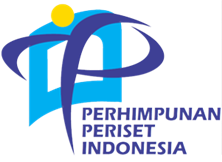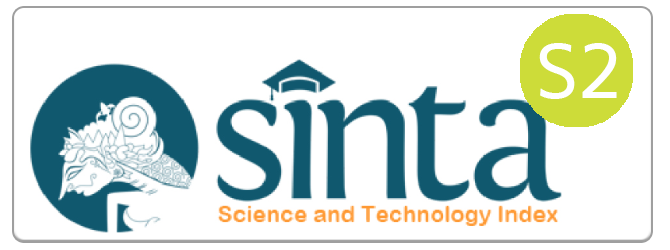The Role of Religious Leaders in Healing Mental Disorders through Ritual Practices at PRS Maunatul Mubarok, Demak
Abstract
In Indonesia, religious- and tradition-based healing methods are still widely practiced, especially in rural areas with strong attachments to religious values. The study focused on how religious leaders, through certain rituals, act as healing agents believed to be able to restore spiritual balance and mental health to patients. Using an anthropological approach, research was conducted at PRS Maunatul Mubarok, Demak, Central Java, a religious healing center. Data was obtained through in-depth interviews and first-hand observation of healing ritual practices. The results of the study show that healing rituals function not only as therapeutic efforts, but also as social mechanisms that strengthen community solidarity and instill hope for patients. Furthermore, these findings highlight the importance of cross-cultural understanding in mental health systems and the need to develop treatment approaches that integrate medical and religious aspects in a balanced manner. Religious leaders and ritual-based healing practices have a significant role to play in providing alternative treatment for mental disorders, especially in communities heavily influenced by tradition and religion.
Keywords
Full Text:
PDFReferences
A’dam, Syahrul. 2016. “Implikasi Hubungan Kyai Dan Tarekat Pada Pendidikan Pesantren.” KORDINAT: Jurnal Komunikasi Antar Perguruan Tinggi Agama Islam 15(1). doi: 10.15408/kordinat.v15i1.6300.
Abdullah, Irwan. 2007. Konstruksi Dan Reproduksi Kebudayaan. Yogyakarta: Pustaka Pelajar.
Al-Buthi, Muhammad Said Ramadhan. 2020. Al-Hikam Al-Athaiyyah: Syarah Al-Hikam Ibn ‘Athaillah as-Sakandari. Tangerang Selatan: Pustaka IIMan.
Austin, Zubin, and Jane Sutton. 2014. “Qualitative Research: Getting Started.” The Canadian Journal of Hospital Pharmacy 67(6). doi: 10.4212/cjhp.v67i6.1406.
Buresh, Scott Allen. 2002. Pesantren-Based Development: Islam, Education, and Economic Development in Indonesia. Virginia: University of Virginia.
Burke, Adam, Chun Nok Lam, Barbara Stussman, and Hui Yang. 2017. “Prevalence and Patterns of Use of Mantra, Mindfulness and Spiritual Meditation among Adults in the United States.” BMC Complementary and Alternative Medicine 17(1):316. doi: 10.1186/s12906-017-1827-8.
Creswell, Jhon W., and J. David Cresswell. 2018. Research Design: Qualitative, Quantitative, and Mixed Methods Approaches.
Dhofier, Zamakhsyari. 2011. Tradisi Pesantren: Studi Tentang Pandangan Hidup Kyai Dan Visinya Mengenai Masa Depan Indonesia. 10th ed. Jakarta: Jakarta: LP3ES.
Diyanah, Nisa. 2019. “Interaksi Sosial Dalam Pemulihan Orang Dengan Bipolar Pada Komunitas Bipolar Care Indonesia.” Fakultas Ilmu Dakwah dan Ilmu Komunikasi Universitas Islam Negeri Syarif Hidayatullah Jakarta.
Durkheim, Émile. 1995. The Elementary Forms of Religious Life. New York: Free Press.
Edgar, Iain, and David Henig. 2010. “Istikhara : The Guidance and Practice of Islamic Dream Incubation Through Ethnographic Comparison.” History and Anthropology 21(3):251–62. doi: 10.1080/02757206.2010.496781.
Forsberg, Klara, Daniel Sutton, Sigrid Stjernswärd, Ulrika Bejerholm, and Elisabeth Argentzell. 2024. “Experiences of Participating in a Group-Based Sensory Modulation Intervention for Mental Health Service Users.” Scandinavian Journal of Occupational Therapy 31(1). doi: 10.1080/11038128.2023.2294767.
Freire, Jaclin, Carla Moleiro, David H. Rosmarin, and Marina Freire. 2019. “A Call for Collaboration: Perception of Religious and Spiritual Leaders on Mental Health (A Portuguese Sample).” Journal of Spirituality in Mental Health 21(1):55–75. doi: 10.1080/19349637.2017.1423001.
Geertz, Clifford. 1960. The Religion of Java. Chicago and London: Chicago and London: The University of Chicago Press.
Geertz, Clifford. 1977. The Interpretation of Cultures. New York: Basic Books.
Ghadirian, Abdu’L Missagh. 2021. “The Role of Religion and Spirituality in Mental Health.” Innovations in Global Mental Health: Volume 1-2 2:1535–56. doi: 10.1007/978-3-030-57296-9_118.
Hakim, Fatwa Nurul, Suryani Suryani, and Nopita Sitompul. 2019. “Evaluasi Pelayanan Rehabilitasi Sosial Bagi Korban Penyalahguna Napza Di Prs Maunatul Mubarok.” Media Informasi Penelitian Kesejahteraan Sosial 43(1):79–88.
Hawari, Dadang. 2005. Dimensi Religi Dalam Praktek Psikiatri Dan Psikologi. Jakarta: Balai Penerbit Fakultas Kedokteran Universitas Indonesia.
Hume, Lynne, and Jane Mulcock. 2004. Anthropologists in the Field: Cases in Participant Observation. New York: Columbia University Press.
Ibrahim, Mohamed, and Fareed Mojab. 2023. “Healing Through Faith: The Role of Spiritual Healers in Providing Psychosocial Support to Canadian Muslims.” Journal of Muslim Mental Health 17(1):72–79. doi: 10.3998/jmmh.2057.
Isbah, M. Falikul. 2020. “Pesantren in the Changing Indonesian Context: History and Current Developments.” Qudus International Journal of Islamic Studies 8(1):65–106. doi: 10.21043/QIJIS.V8I1.5629.
Kasanova, Ria, Andayani Andayani, and Nugraheni Eko Wardani. 2024. “Madurese Mantras as Local Wisdom, Spiritual Values, and Outlook on Life: An Ethnolinguistic Study.” International Journal of Society … 12(1). doi: 10.22034/ijscl.2023.2012462.3186.
Kementerian Kesehatan RI. 2019. “Profil Kesehatan Indonesia 2018.” Kementerian Kesehatan RI.
Kleinman, Arthur. 2020. The Illness Narratives : Suffering, Healing, and the Human Condition. New York: Basic Books.
Koenig, Harold G. 2009. “Research on Religion, Spirituality, and Mental Health: A Review.” The Canadian Journal of Psychiatry 54(5):283–91. doi: 10.1177/070674370905400502.
Lareau, Annette. 2021. Listening to People: A Practical Guide to Interviewing, Participant Observation, Data Analysis, and Writing It All Up. Chicago and London: University of Chicago Press.
Lekoa, Mammusa Rosinah, and Sibusiso Louis Ntuli. 2021. “An Attack on the Cross: Spiritual Leaders’ Accounts of Fear and Resilience during COVID-19 Pandemic.” Pharos Journal of Theology 102(102(2)):1–12. doi: 10.46222/pharosjot.102.212.
Lestari, Puji. 2015. “Metode Terapi Dan Rehabilitasi Korban NAPZA Di Pondok Pesantren Suryalaya Tasikmalaya.” DIMENSIA: Jurnal Kajian Sosiologi 6(1). doi: 10.21831/dimensia.v6i1.3367.
Mahwati, Yeni. 2017. “The Relationship between Spirituality and Depression Among the Elderly in Indonesia.” Makara Journal of Health Research 21(1). doi: 10.7454/msk.v21i1.6206.
Masanah, Masanah. 2020. “Penerapan Metode Dzikir Dan Mandi Taubat Sebagai Terapi Pendidikan Bagi Orang Yang Ketergantungan Narkoba (Studi Kasus Di Pondok Pesantren Suryalaya Tasikmalaya).” Universitas Islam Negeri Sultan Maulana Hasanuddin Banten.
Mkabile, Siyabulela, and Leslie Swartz. 2022. “Spiritual Healers’ Explanatory Models of Intellectual Disability in Cape Town, South Africa.” Journal of Disability and Religion 26(1):70–86. doi: 10.1080/23312521.2021.1973939.
Nakash, Ora, Tal Lambez, Michal Cohen, and Maayan Nagar. 2019. “Religiosity and Barriers to Mental Healthcare: A Qualitative Study among Clients Seeking Community Mental Health Services.” Mental Health, Religion & Culture 22(5):437–52. doi: 10.1080/13674676.2018.1489377.
Nida, Fatma Laili Khoirun. 2022. “Integrasi Terapi Makna Hidup Dan Relogious Healing Dalam Menangani Pasien Psikosis.” Universitas Islam Negeri Walisongo Semarang.
O’Connor, Bonnie Blair. 1995. Healing Traditions: Alternatives Medicine and Teh Health Professions. University of Pennsylvania Press.
Oepen, Manfred, and Wolfgang (eds) Karcher. 1988. The Impact of Pesantren in Education and Community Development in Indonesia. Berlin: Berlin : P3M (Indonesian Society for Pesantren and Comunity Development).
Padmavati, R., R. Thara, and Ellen Corin. 2005. “A Qualitative Study of Religious Practices by Chronic Mentally Ill and Their Caregivers in South India.” International Journal of Social Psychiatry 51(2):139–49. doi: 10.1177/0020764005056761.
Papadopoulos, Irena, Runa Lazzarino, Steve Wright, Poppy Ellis Logan, and Christina Koulouglioti. 2021. “Spiritual Support During COVID-19 in England: A Scoping Study of Online Sources.” Journal of Religion and Health 60(4):2209–30. doi: 10.1007/s10943-021-01254-1.
Rahardjo, Dawam M. 1985. Pergulatan Dunia Pesantren: Membangun Dari Bawah. Jakarta: Jakarta: LP3ES.
Reinhardt, Bruno. 2020. “Atmospheric Presence: Reflections on ‘Mediation’ in the Anthropology of Religion and Technology.” Anthropological Quarterly 93(1):1523–53. doi: 10.1353/anq.2020.0021.
Roussou, Eugenia. 2021. “Transnational Spirituality and Healing: An Ethnographic Exploration of Alternative Medicine in Lisbon and Athens.” Anthropology & Medicine 28(4):493–507. doi: 10.1080/13648470.2021.1888870.
Sadiah, Dewi. 2022. “Developing Pesantren Education Quality Thorugh Radicalism Prevention Program for Santri.” Jurnal Pendidikan Islam 8(1):63–74. doi: 10.15575/jpi.v8i1.17947.
Salan, Rudy, and Thomas Maretzki. 1983. “Mental Health Services and Traditional Healing in Indonesia: Are the Roles Compatible?” Culture, Medicine and Psychiatry 7(4):377–412. doi: 10.1007/BF00052239.
Saraswati, Sinta. 2019. “Dukungan Sosial Keluarga Dalam Proses Pemulihan Orang Dengan Skizofrenia Di Komunitas Peduli Skizofrenia Indonesia.” Fakultas Ilmu Dakwah dan Ilmu Komunikasi Universitas Islam Negeri Syarif Hidayatullah Jakarta.
Sholeh, Moh. 2012. Terapi Shalat Tahajud: Menyembuhkan Berbagai Penyakit. Jakarta: Noura Books.
Simon, Rozalyn, Johan Pihlsgård, Ulrika Berglind, Birgitta Söderfeldt, and Maria Engström. 2017. “Mantra Meditation Suppression of Default Mode Beyond an Active Task: A Pilot Study.” Journal of Cognitive Enhancement 1(2):219–27. doi: 10.1007/s41465-017-0028-1.
Srimulyani, Eka. 2009. “Nyai Dan Umi Dalam Tradisi Pesantren Di Jawa Dan Dayah Di Aceh:Achieved Dan Derivative Power.” Jurnal Masyarakat Dan Budaya 11(1). doi: https://doi.org/10.14203/jmb.v11i1.234.
Subu, Muhammad Arsyad, Jacqueline Maria Dias, Richard Mottershead, Fatma Refaat Ahmed, Sari Narulita, Maryuni Maryuni, Zakiyah Zakiyah, Irma Nurbaeti, Alounoud Mohamed Al Marzouqi, and Nabeel Al-Yateem. 2024. “Exploring Mental Health Stigma among Indonesian Healthcare Students towards Individuals with Mental Illnesses: A Qualitative Study.” International Journal of Qualitative Studies on Health and Well-Being 19(1). doi: 10.1080/17482631.2024.2327103.
Subu, Muhammad Arsyad, Dave Holmes, Ashokan Arumugam, Nabeel Al-Yateem, Jacqueline Maria Dias, Syed Azizur Rahman, Imam Waluyo, Fatma Refaat Ahmed, and Mini Sara Abraham. 2022. “Traditional, Religious, and Cultural Perspectives on Mental Illness: A Qualitative Study on Causal Beliefs and Treatment Use.” International Journal of Qualitative Studies on Health and Well-Being 17(1). doi: 10.1080/17482631.2022.2123090.
Sukamto. 1999. Kepemimpinan Kiai Dalam Pesantren. Jakarta: Jakarta: LP3ES.
Taufiq, Amal, Mohd Zainizan Sahdan, and Dwi Setianingsih. 2024. “Construction of Religious Habitus In Indonesian Islamic Boarding Schools.” Jurnal SMaRT : Studi Masyarakat, Religi, Dan Tradisi 10(2). doi: 10.18784/smart.v10i2.2458.
Thohir, Mudjahirin. 2016. Orang Islam Jawa Pesisiran. Semarang: FASINDO.
Turmudi, Endang. 1996. Struggling for the Umma. ANU E Press.
Turner, Victor. 1977. The Ritual Process: Structure and Anti-Structure. New York: Cornell University Press.
Wahid, Abdurrahman. 2001. Menggerakkan Tradisi: Esai-Esai Pesantren. Yogyakarta: Yogyakarta: LKiS.
Wahyuni, Sri, Wandee Suttharangsee, and Orawan Nukaew. 2017. “Religious Belief in Mental Illness Religious Belief in Mental Illness and Its Influences on Seeking Treatment: Indonesian Patients’ Perspectives.” Pp. 60–68 in The 2017 International Nursing Conference on Ethics, Esthetics, and Empirics in Nursing: Driving Forces for Better Health, Songkhla, Thailand. Vol. 37.
Zainurofieq. 2021. “‘Gerakan Politik Kaum Tarekat Dalam Sejarah Indonesia.’” Jurnal Iman Dan Spiritualitas 1(4):547–52. doi: http://dx.doi.org/10.15575/jis.v1i4.15027.
Zarkasyi, Hamid Fahmy. 2020. “Imam Zarkasyi’s Modernization of Pesantren in Indonesia (A Case Study of Darussalam Gontor).” QIJIS (Qudus International Journal of Islamic Studies) 8(1):161. doi: 10.21043/qijis.v8i1.5760.
DOI: https://doi.org/10.18784/smart.v11i1.2902
Refbacks
- There are currently no refbacks.
Copyright (c) 2025 Sulaiman Sulaiman, Miftahul Ula

This work is licensed under a Creative Commons Attribution 4.0 International License.








